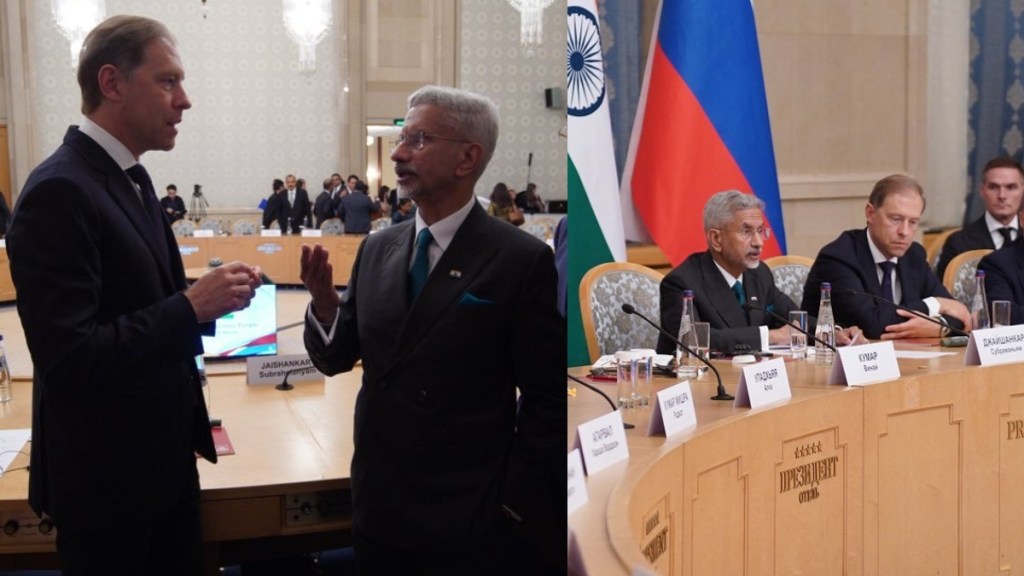Amid the increasing pressure of Trump tariffs on India, External Affairs Minister S Jaishankar on Wednesday highlighted the challenges posed due to “tariff and non-tariff barriers” in India-Russia trade.
Jaishnakar was speaking at the 26th Session of the India-Russia Inter-Governmental Commission on Trade, Economic, Scientific, Technological and Cultural Cooperation (IRIGC-TEC) in Moscow, where he stressed the need for an “early conclusion” of a Free Trade Agreement between India and the Eurasian region. The Russian side at the meeting was led by First Deputy Prime Minister Denis Manturov.
What is the India-EAEU Free Trade Agreement?
During the session co-chaired with Russia’s First Deputy Prime Minister Denis Manturov, Jaishankar stressed that the long-discussed India-EAEU Free Trade Agreement should be concluded without further delay. He highlighted Russia’s consistent support for the pact, which is expected to boost overland trade links connecting Russia, China, India, and Central Asian nations.
The External Affairs Minister underlined that the commission had agreed on the terms of reference for the Free Trade Agreement at the Moscow meeting, calling it a significant milestone in the negotiation process.
FTA is a pact between two or more nations designed to lower or remove trade barriers like tariffs, import limits and export restrictions on goods and services. The primary goal of FTA is to promote trade and investment among member countries by fostering a more open and supportive trading environment.
Jaishnakar further said that India is committed to making its economic partnership with Russia stronger. After attending the India-Russia Business Forum in Moscow, Jaishankar shared a post on social media platform X (formerly Twitter), Jaishankar noted that he was glad to join Manturov at the forum and appreciated the suggestions from business leaders, who pointed out the huge untapped potential in trade and investment between the two countries.
“Appreciate the assessments and reports of various sectoral leaders regarding the deeper potential of our economic ties,” the EAM wrote on X.
EAM Dr S Jaishankar tweets, "Pleased to join First DPM Denis Manturov and attend the India-Russia Business Forum. Appreciate the assessments and reports of various sectoral leaders regarding the deeper potential of our economic ties. Reiterated that an enduring strategic… pic.twitter.com/2jbuk9a7tI
— ANI (@ANI) August 20, 2025
India-Russia partnership
Jaishankar stressed that the India-Russia partnership will only stay strong if it is supported by deeper and more sustainable economic cooperation. He urged businesses from both countries to look at new trade opportunities, start joint ventures, and build collaborations in different sectors.
“Reiterated that an enduring strategic partnership must have a strong and sustainable economic component. In this context, called on our businesses to do more trade, contemplate more investments & joint ventures and open new frontiers of economic cooperation,” he said.
Surge in bilateral trade
Jaishankar also pointed to the sharp rise in India-Russia trade, which has grown more than five times in the past four years. Bilateral trade in goods increased from $13 billion in 2021 to $68 billion in 2024-25, driven mainly by India’s growing imports of Russian hydrocarbons following Western sanctions on Moscow.

